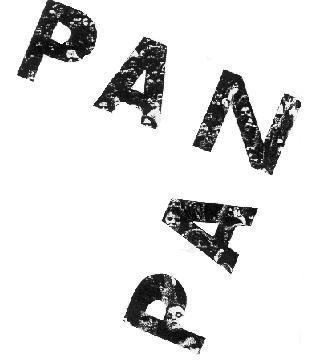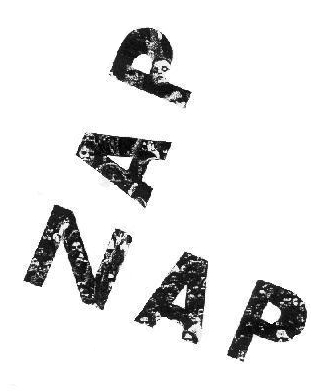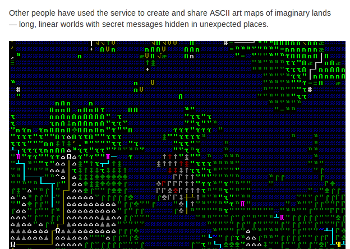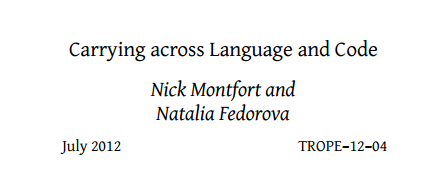
A Rough-Cut Gorge
“Rough Cuts: Media and Design in Process,” a set of “middle-state artifacts” curated by Kari Kraus, has just been presented as part of The New Everyday, a project at MediaCommons.
My contribution is a printout of “Taroko Gorge” in the original Klingon Python. I also offer some discussion of this printed page, representing one phase of a poetry generator that has been reworked and plundered more than a dozen times.
Shuffle Literature? Read ‘Em and Weep
Among several notable new articles in ebr (electronic book review), please find “Shuffle Literature and the Hand of Fate” by Zuzana Husárová and Nick Montfort:
Zuzana Husárová and Nick Montfort up the ante for experimental writing by examining the category of “shuffle literature.” What is shuffle literature? Simply put: books that are meant to be shuffled. Using formal reading of narrative and themes, but also a material reading of construction and production, Husárová and Montfort show that there are many writing practices and readerly strategies associated with this diverse category of literature.
S=A=U=S=A=G=E
Alternate (actually, rejected) titles for the famous journal L=A=N=G=U=A=G=E, recently revealed in Jacket2.
I don’t know about you, but Charles Bernstein and Bruce Andrews’s cutting room floor is often better than what ends up stuffed into my projector.
For instance, I see that Rhizome, which wound up being used, is on the list.
Maybe the next interactive fiction journal could be called Inventory.
And, I think Salad is still a great title – maybe even a better one today. It’s a dish best served cold.
A Thousand Twitters
News of a strange new social network, Monolyth, reaches us from December of this year and from Chris McDowall.
To sate the great appetites of the system, which will only publish messages at least 140,000 characters long (and will abbreviate longer ones), authors turn to unusual techniques.
One of these is generating massive texts using modified versions of Taroko Gorge, one of which is included in the blog post.
Ubu Runs Ubuntu!
Welcome back to the Web’s major agglomeration of the avant-garde, Ubuweb.
(I don’t know that Ubu actually runs Ubuntu, but some statements are univocalically true regardless. And the site is back up, that’s for sure.)
A Take on Sea and Spar Between
I was extremely pleased to read Michael Leong’s discussion of Sea and Spar Between in At Length. Among other things, he considers in what way this could be considered a “long poem,” makes connections to Whitman’s “Crossing Brooklyn Ferry,” treats the interface and experience, and recounts a hilarious exchange between Toni Morrison and Oprah Winfrey. I really appreciated his discussion of different types of attention spans; these were issues that I (and I know Stephanie) have had in mind for quite a while.
At any rate, if you are interested in my & Stephanie Strickland’s Sea and Spar Between, or if you’ve been wondering about this piece but can’t figure out what to make of it, please take a look at Michael Leong’s article.
Language and Code at the Gate
What are we waiting for, assembled in the forum?
A technical report is to arrive today.
No need to worry about what will become of you without a technical report! The report, the fourth “Trope Report” in the Trope Tank series that started this year, is here:
In “Carrying across Language and Code,” Natalia and I discuss issues of translation and computational writing. With reference to electronic literature translation projects in which we have been involved as translators or as authors of the source work, we argue that the process of translation can expose how language and computation interrelate in electronic literature. Various small poetry generators, a cybertext poem, and two works of interactive fiction are discussed in this report.
Share and enjoy…
“Taroko Gorge”: The Vandalism Continues!
As I wrote a few days ago, I made a statement about “Taroko Gorge,” and all of its vandals, at the ELO conference in Morgantown, WV.
Sepand Ansari created a Beckett-based “Taroko Gorge” remix at the ELO conference. And now I have the URL for this piece, “Waiting for Taroko Gorge.”
Kathi Inman Berens has created “Tournedo Gorge” “to mash the space of computation with the female, domestic, and tactile,” as she discusses in her blog post.
“Taroko Gorge” at the WVU ELO Conference
_This was my statement for the “Taroko Gorge Remixed” panel yesterday (June 21) at the 2012 ELO conference. The panel was organized by Mark Sample and also featured Scott Rettberg, J. R. Carpenter (who joined us by video chat), Talan Memmott, Eric Snograss, Flourish Klink, and Andrew Plotkin. In attendance and part of the discussion were Leonardo Flores and Sonny Rae Tempest, who did work based on the Taroko Gorge code after the panel was proposed._
It is curious that I was invited to be part of this panel today, for I am the only speaker in this session who has not created and released a remix of Nick Montfort’s “Taroko Gorge.”
Today, however, to remedy this mismatch, to bridge this gap, to traverse this gorge, I am releasing a remix of my poetry generator, “Taroko Gorge.” This new work that I have completed and placed online today is also called “Taroko Gorge.” This remix was created to be an elegant poetry generator, producing a boundless nature poem and inspired by the experience of walking through Taroko Gorge National Park in Taiwan. The code of the program is the same as that of the original, and the text used as strings in the generator is also the same as that of the original. No comments have been added.
So, how can one distinguish this new “Taroko Gorge” from the original poetry generator of the same name? For one thing, I have placed today’s date on the right side of the page, to indicate that _this_ is the remix that was completed today. When citing this work, you must also include the date that you accessed this page to comply with MLA, Chicago Manual of Style, and other bibliographic standards. If you leave the “Taroko Gorge” page open long enough, staring at it with meditative bliss, rapt attention, or monomaniacal trembling, you should include a date range rather than a single date in your bibliographic entry.
But enough of the temporal dimension. In addition to including a date, the new version of “Taroko Gorge” includes the names of all known vandals, those who have replaced my own lyrical words and phrases with ones associated with various other individual visions, ranging from the idiosyncratic to the downright perverse. These appear on the right-hand side – stricken out. Since it is not proper to condemn people without evidence – unless we put them aboard a plane and take them to another country – I have also included links to the offending Web pages.
This remix of “Taroko Gorge” asserts something very simple: that the rebirth of the author comes at the expense of the death of other authors. Something simple, about originality, voice, and purity of essence, which has been said in so many ways: Remix = death. Take back the gorge. Don’t tread on me. There’s a bear in the woods. Make it old. I did it my way. Under the page, the code.
Translating Clemente Padin
Ottar Ormstad made the case for non-translation at the recent Paris 8 conference on the translation electronic literature. He eloquently explained that many explorations of language (including concrete poems) do not lend themselves to either ordinary translation or a simply explanatory note. This was a reasonable point that is appropriate to many works of concrete and sound poetry.
To illustrate this point, he displayed this concrete poem by Uruguayan poet Clemente Padin.

Very compelling! This is an amazing poem that is quite language-specific. And yet, I was compelled to translate it to English, and have done so below:

The original message, that PAN (bread) converges with PAZ (peace), cannot be communicated precisely in every way. But, using the same characters as in the original poem, I can assert that people should ZAP their NAP and wake up to our reality, in which the needs of our fellow people must be met before peace can be attained.
The End of ppg256
I presented the last ppg256 poem (ppg256-7) in Paris today at &Now.
Here are the current versions of all of the ppg256 poems/programs:
Christian Bök in Purple Blurb *Thursday* 6pm
Update: Thanks to Francisco Ricardo, a video of some of Christian’s Purple Blurb reading is now online.
The Spring 2012 Purple Blurb series comes to an end this week, not with a whimper, but with Christian Bök!
Thursday May 3
6-120
6pm
Christian Bök is the author of Crystallography (Coach House Press, 1994),
a pataphysical encyclopedia nominated for the Gerald Lampert Memorial
Award, and of Eunoia (Coach House Books, 2001), a bestselling work of
experimental literature, which has gone on to win the Griffin Prize for
Poetic Excellence. Bök has created artificial languages for two
television shows: Gene Roddenberry’s Earth: Final Conflict and Peter
Benchley’s Amazon. Bök has also earned many accolades for his virtuoso
performances of sound poetry (particularly the Ursonate by Kurt
Schwitters). His conceptual artworks (which include books built out of
Rubik’s cubes and Lego bricks) have appeared at the Marianne Boesky
Gallery in New York City as part of the exhibit Poetry Plastique. Bök is
currently a Professor of English at the University of Calgary.
If you’re in the Boston area, and interested in radical play with language (why else would you have found this blog?) please come by.
Star Wars, Raw? Rats!
Un file de Machine Libertine:
Star Wars, Raw? Rats!
… is a videopoem by Natali Fedorova and Taras Mashtalir. The text is a palindrome by Nick Montfort that briefly retells “Star Wars Episode IV: A New Hope,” making Han Solo central. The soundtrack is a remix of Commodore 64 music by Sven Schlünzen & Jörg Rosenstiel made by Mashtalir.
The palindrome is a revised version of the one Montfort wrote in 75 minutes for the First World Palindrome Championship, held in Brooklyn on March 16, 2012:
Wow, sagas!
Solo’s deed, civic deed.
Eye dewed, a doom-mood.
A pop …
Sis sees redder rotator.
Radar eye sees racecar X.
Dad did rotor gig.
Level sees reviver!
Solo’s deified!
Solo’s reviver sees level …
Gig rotor did dad!
X, racecar, sees eye.
Radar rotator, redder, sees sis …
Pop a doom-mood!
A dewed eye.
Deed, civic deed.
Solo’s sagas: wow.
Machine Libertine: http://machinelibertine.wordpress.com/
The big-screen premiere of Star Wars, Raw? Rats! will be at MIT in room 32-155 on Monday, April 30, 2012. The screening, which includes a set of films made by members of the MIT community, will begin at 6pm.
Borsuk, Bök, Montfort – May 5, 7pm, Lorem Ipsum
I’m reading soon with our Canadian guest Christian Bök and with my MIT colleague Amaranth Borsuk, who will present _Between Page and Screen_ (published by Siglio Press this year). The gig is at:
Lorem Ipsum Books
1299 Cambridge Street
Inman Square
Cambridge, MA
Ph: 617-497-7669
May 7, 2012 at 7pm
Amaranth Borsuk is the author of _Handiwork_ (2012), the chapbook _Tonal Saw_ (2010), and a collaborative work _Excess Exhibit_ to be released as both a limited-edition book and iPad application in 2012. Her poems, essays, and translations have been published widely in journals such as the _New American Writing, Los Angeles Review, Denver Quarterly, FIELD, and Columbia Poetry Review._ She has a Ph.D. in Literature and Creative Writing from USC and is currently a Mellon Postdoctoral Fellow in Comparative Media Studies, Writing and Humanistic Studies at MIT where she works on and teaches digital poetry, visual poetry, and creative writing workshops.
Christian Bök is the author of _Crystallography_ (2003), a pataphysical encyclopedia, and of _Eunoia_ (2009), a bestselling work of experimental literature. Bök has created artificial languages for two television shows: Gene Roddenberry’s _Earth: Final Conflict_ and Peter Benchley’s _Amazon._ Bök has also earned accolades for his virtuoso performances of sound poetry (particularly _Die Ursonate_ by Kurt Schwitters). Currently, he is conducting a conceptual experiment called _The Xenotext_ (which involves genetically engineering a bacterium so that it might become not only an archive for storing a poem in its genome for eternity, but also a machine for writing a poem as a protein in response). He teaches English at the University of Calgary.
Nick Montfort writes computational and constrained poetry, develops computer games, and is a critic, theorist, and scholar of computational art and media. He teaches at MIT and is currently serving as president of the Electronic Literature Organization. His digital media writing projects include the interactive fiction system Curveship; the group blog _Grand Text Auto;_ _Ream,_ a 500-page poem written on one day; _2002: A Palindrome Story,_ the longest literary palindrome (according the Oulipo), written with William Gillespie; _Implementation,_ a novel on stickers written with Scott Rettberg; and several works of interactive fiction: _Winchester’s Nightmare, Ad Verbum,_ and _Book and Volume._ His latest book, _Riddle & Bind_ (2010), contains literary riddles and constrained poems.
Straight into the Horse’s Mouth
My word-palindrome writing project (being undertaken as @nickmofo) has been boosted by Christian proselytizing, by Bök’s page. I am delighted to be featured in Christian Bök’s post on Harriet as an instance of conceptual writing on Twitter – named, in fact, right after @Horse_ebooks.
This makes it particularly apt that Christian describes my writing as potential poetic “fodder.” Why not treat this feed of texts as the gift horse that keeps on giving? Please, feel free to make the tweets of @nickmofo into your chew toy.
Steve McCaffery Reading Carnival at Purple Blurb
Steve McCaffery read at MIT in the Purple Blurb series on March 19, 2012. A recording of part of that reading (his reading of Carnival) is embedded above; the text of my introduction follows.
Thank you all for braving the cold to come out today. Did you know that today is officially the last day of Winter? Ever! Winter is officially over forever!
But I come not to bury Winter, but to praise Steve McCaffery, and to introduce him. Steve McCaffery is professor and Gray Chair at the University of Buffalo in the Poetics Program. He comes to us from there, and before, from Canada, where he did much of his pioneering work in sound and concrete poetry. He is one of those people who is know for his non-digital work but without whom the current situation of electronic literature, of digital writing, could not exist. He is in that category, for instance, with Jorge Luis Borges.
You would have me institutionalized for loggorrhea if I attempted to read Steve McCaffery’s entire bibliography and discography to you.
Know, however, that McCaffery was one of the Four Horsemen, along with bpNichol, Rafael Barreto-Rivera, and Paul Dutton. This groundbreaking group of sound poets, numbering almost as many mouths as there are vowels, released several albumbs: “Live in the West,” and “Bootleg,” and “caNADAda.”
McCaffery’s critical writing can found in “North of Intention: Critical Writings 1973-1986” and “Prior to Meaning: The Protosemantic and Poetics” His two-volume selected poems, “Seven Pages Missing,” was published in Coach House in 2000. It earned him his second Governor General’s Awards nomination; his first was for his 1991 book “Theory of Sediment.” More recently, there’s his “Verse and Worse: Selected Poems 1989-2009,” which he and Darren Wershler edited.
And, I’ll mention two other books, his “The Basho Variations,” published in 2007, which consists of different translations and version of Matsuo Basho’s famous haiku, which could be rendered clunkily as “old pond / frog jump in / water sound.” A digital version of this haiku can be seen in Neil Hennesy’s “Basho’s Frogger,” a modified version of the game Frogger in which the first row of floating items is missing so that one can only … you know … jump in. McCaffery is pond and frog and sound, placid and salient and resonant, and we are very lucky to have him here with us tonight.
Finally, I want to mention his extraordinary poem “Carnival.” I’ve taught the first panel to dozens of students here at MIT, so it’s black and red and read all over. The two panels of “Carnival” are incredible documents. If only fragments of them survive in three thousand years, that will be adequate for archaeologists to reconstruct the functioning and history of the typewriter completely. Of course, there’s more to “Carnival” than that material writing technology. But instead of saying more, I should simply let our guest give voice to “Carnival” and other works of his. Please join me in welcoming Steve McCaffery…




